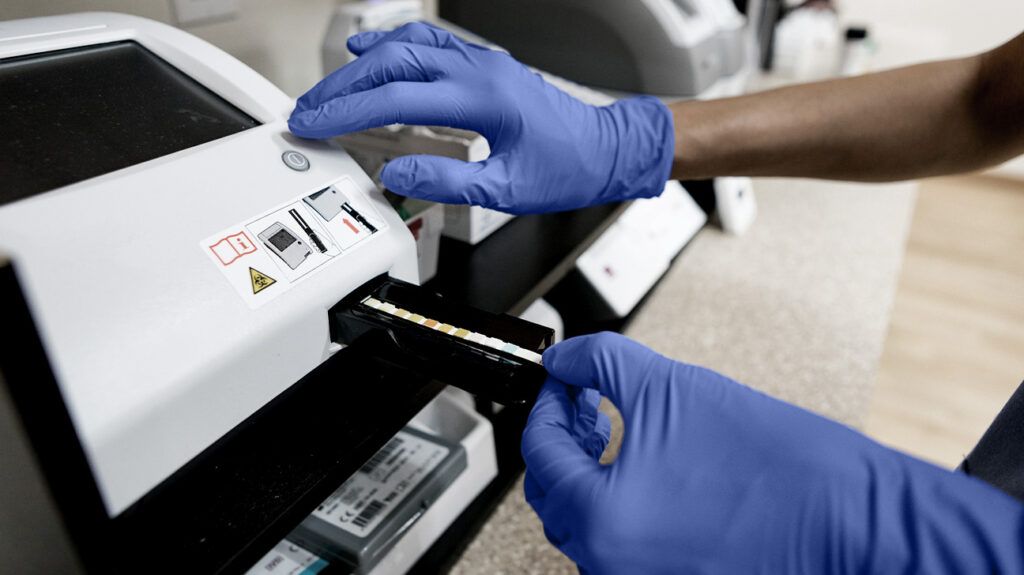A urine cytology test is a diagnostic tool that can help detect different types of cancer in the urinary system. Using the test, a cytopathologist can screen for pre-cancer or cancer cells in urine.
Importantly, a urine cytology test alone, cannot diagnose urinary tract cancers. If a cytology test detects any abnormal or cancer cells, doctors are highly likely to request further testing to confirm the diagnosis.
Read on to learn more about urine cytology and its uses.

Urine cytology is a screening tool that healthcare professionals can use to test a urine sample for cancer cells. Cytology is a term that describes diagnosing a disease by looking at single cells or a small cluster of cells. With urine cytology, the specific cells, or cell clusters, are present in urine.
Urine cytology is one of many tools that can help diagnose cancers that affect the urinary tract. However, urine cytology alone cannot diagnose cancer. As such, if the test suggests the presence of cancerous cells, a doctor will likely request further tests, such as a cystoscopy or CT scan.
Because urine cytology tests typically cost less than other tests, doctors use them to both help diagnose and screen for several urinary tract cancers.
Compared with other diagnostic tools urine cytology tests are also
- easier to perform
- less likely to cause discomfort
- unlikely to cause serious complications
The cancers urine cytology tests can help diagnose include:
In some instances, other diagnostic tests, such as a biopsy, can be
Prior to the test, a healthcare professional will provide instructions on how best to collect a urine sample. For example, the first urine a person passes in the morning may not be suitable for cytological analysis.
Additionally, it may be advisable to lightly wash the genitalia. More specifically, experts advise wiping the head of the penis or the vaginal area with a sterile wipe — or washing and rinsing with soap and water.
When urinating into the container, allow a small amount of urine to run into the toilet. Then, collect around 3–6 ounces (oz) of urine into the sterile container. To prevent any leakage, a person should ensure that they screw on the top of the container tightly.
If a healthcare professional collects urine with a catheter, there is a risk of urinary tract infection. Consequently, they make take extra steps to prevent an infection from occurring.
The healthcare professional will then send all of the samples to a lab where they undergo analysis.
The following are examples of questions a person could ask a doctor to gain a better understanding of a urine cytology test and why they need it.
- Why is a urine cytology test helpful?
- How accurate is a urine cytology test?
- How long does it take to receive the results?
- Are other tests necessary after a urine cytology test?
- If the urine cytology test reveals any issues, what happens afterward?
Urine cytology test results can vary depending on many factors, such as a person’s age, gender, and health history.
When a person receives a
If a test is negative, no abnormal or cancer cells were present in the urine. However, if a doctor still suspects a person has urinary tract cancer, they may suggest further tests to ensure the test was not a false negative.
Urine cytology tests are
Some cytology results can be ready
Common reasons for delays include:
- the cytopathologist seeking a second opinion
- delays in entering test results into the system
- the doctor receiving the results via a mail service
In addition to urine cytology, there are other urine tests a person can receive. Different urine tests help diagnose different conditions and
- Rapid urine test: This test helps diagnose kidney inflammation, high blood sugar, and infection.
- Urinalysis: Urinalysis helps diagnose kidney function, cholesterol levels, and kidney disease.
- Urine cultures: These help diagnose bacterial or fungal infections.
- 24-hour urine collection: This helps diagnose endocrine conditions, diabetes, pelvic inflammation, urinary tract infections, kidney disease, kidney cancer, and heart failure.
Pregnancy tests are also urine tests. After doing a test, a person should go to the doctor to confirm the pregnancy and receive appropriate care.
A urine cytology test is one of many diagnostic tools that can help detect urinary tract cancers.
Cytopathologists analyze the urine to check for pre-cancer or cancer cells. Because a urine cytology test alone cannot diagnose cancer, other diagnostic tools and tests are necessary.
Depending on the urine cytology test result, a person may need further tests to confirm the condition causing their symptoms.
